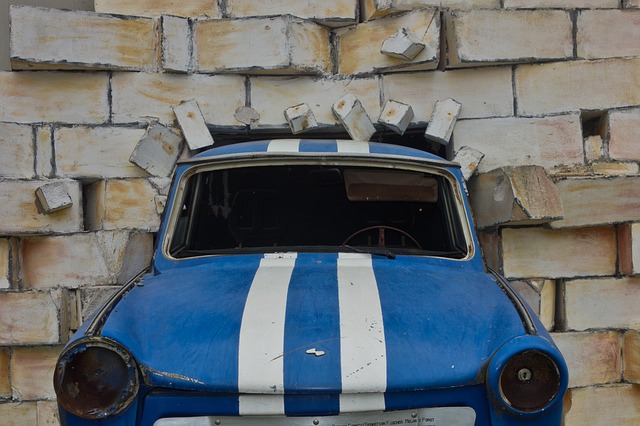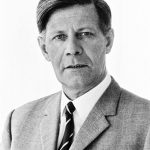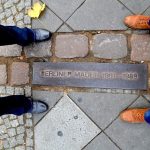
22 December 1976: ARD television correspondent Lothar Loewe is expelled from the GDR “for serious violation of the legal system”. In a report for the “Tagesschau”, Loewe had said that “people were shot at like rabbits” at the inner-German border.
Lothar Loewe had lost his temper a day earlier and, in view of the prevailing circumstances, had perhaps even consciously crossed an imaginary threshold. The ZDF presenter Jan Böhmermann had also crossed such a threshold 40 years later. Unlike Lothar Loewe in 1976, Böhmermann did not have to leave the territory of a sovereign state within 48 hours. He was legally prosecuted by Turkish authorities and their president. During the broadcast of Böhmermann’s Abusive criticism (as well as that one is not allowed to engage in defamatory criticism in Germany…) Turkish subtitles were shown…
Lothar Loewe, on the other hand, said loudly and clearly in German that at the inner-German border “people were being shot at like rabbits”. All compatriots in East and West understood him without subtitles. Of course, this little affair did not make it into the international media…
That was the problem from the GDR point of view, that the language remained the same after the Wall was built. Of course, in the GDR they had tried to develop a “two-nation theory”, which was based on a Socialist German Nation in the GDR. That is why there was early talk of a National anthem in the GDR, although the German nation had not even been consulted. And, therefore, this GDR anthem was only allowed to be intoned at the latest since Erich Honecker came to power in 1971. Incidentally, at the express wish of GDR President Pieck, the hymn text by Johannes R. Becher included the wish for “Germany, united fatherland”. The dilemma of the unchanged language was ideologically countered with the postulate of a “GDR identity”. It was hoped that a “national consciousness” would develop.
But in 1976 all Germans understood very well what Lothar Loewe was saying, even without subtitles. And, because there was no denying it, and because many East Germans were naturally supposed to believe that they were the better “Germans”, such comparisons could not be made with impunity in the GDR about the GDR security authorities. Securing the inner-German borders remained at the same time the GDR’s condition of existence and its Achilles’ heel.
Three years earlier, both German states had been admitted to the United Nations. For the GDR in particular, this was an unconditional gain in prestige. There was almost an overload in establishing diplomatic relations with all the many states. Above all, the supply of real estate in the eastern part was not at all easy, because after all, chanceries and residences were often needed. Although there had been the Basic Treaty between the two German states since 1972 (https://de.wikipedia.org/wiki/Grundlagenvertrag), but the two German states did not establish proper diplomatic relations on this basis. Instead, each had a permanent representation in the other’s “capital”. The individual Permanent Representative had to accredit themselves to the head of state in a similar way to ambassadors.
Lothar Loewe had also had to get accredited two years earlier, at the end of 1974: as an ARD correspondent. He lost this accreditation shortly before Christmas 1976. In the summer of 1976, Lothar Loewe had already put the GDR authorities to the test. He reported on the self-immolation of the pastor Oskar Brüsewitz. (https://de.wikipedia.org/wiki/Oskar_Brüsewitz) in Zeitz. Only then did GDR citizens learn about Brüsewitz’s protest. ARD broadcast its programme on the territory of the GDR and could be received there, e.g. quite normally in Zeitz. Near the inner-German border, reception of ZDF and ARD was no problem at all anyway. The same applied to the wider surroundings of the western part of Berlin. The Sender Freies Berlin (SFB) was part of the ARD and amplified the signal for the East German brothers and sisters.
Only the extreme south-east (Dresden area) and north-east (e.g. the island of Rügen) were reduced to receiving GDR television. Instead, Polish and Czechoslovak television could be received here, in Polish and Czech, of course. There was a joke in the GDR that the meaning of ARD was: All exceptRügen Dresden. The reception of Western television has been strictly persecuted in the beginning (from the 1950s). Members of the Free German Youth (FDJ) paraded across the roofs and twisted the antennas. Anyone caught receiving ARD and ZDF could be punished with prison in the 1960s. Later, the SED Politburo is said to have realised that in those areas of the GDR where Western media could not be received easily, applications to leave the country were particularly high.
The West German media painted a good picture of everyday life in the Federal Republic. GDR citizens who did not recognise the contradictions of everyday life in the Federal Republic developed false ideas that could ultimately break them. Allegedly, a large antenna was to be built in 1989/90 in the Valley of the Unsuspecting (Dresden) for the reception of ARD and ZDF. In 1976, the GDR was far from that and Lothar Loewe had to “leave” or “stay in the West”, as Wolf Biermann put it. (https://de.wikipedia.org/wiki/Wolf_Biermann) only five weeks before.



